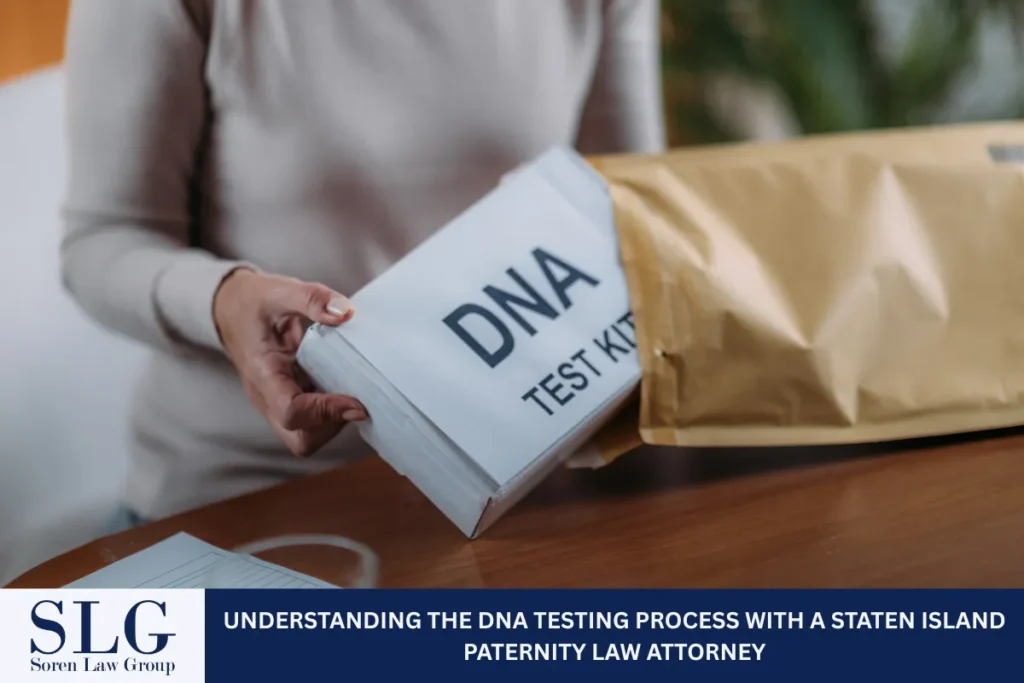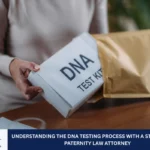Establishing legal fatherhood can significantly impact a child’s life and a parent’s rights, especially in family law cases where clarity is needed. In the middle of every paternity dispute, a paternity law attorney helps guide individuals through complex legal processes—especially those involving DNA testing in Staten Island, New York.
This article explores how DNA testing works in paternity cases, why it holds legal weight, and what you should expect throughout the process. Whether you’re confirming a biological relationship or navigating a court order, understanding each step can make the experience less stressful and more manageable.
Why DNA Testing Is Important in Paternity Disputes
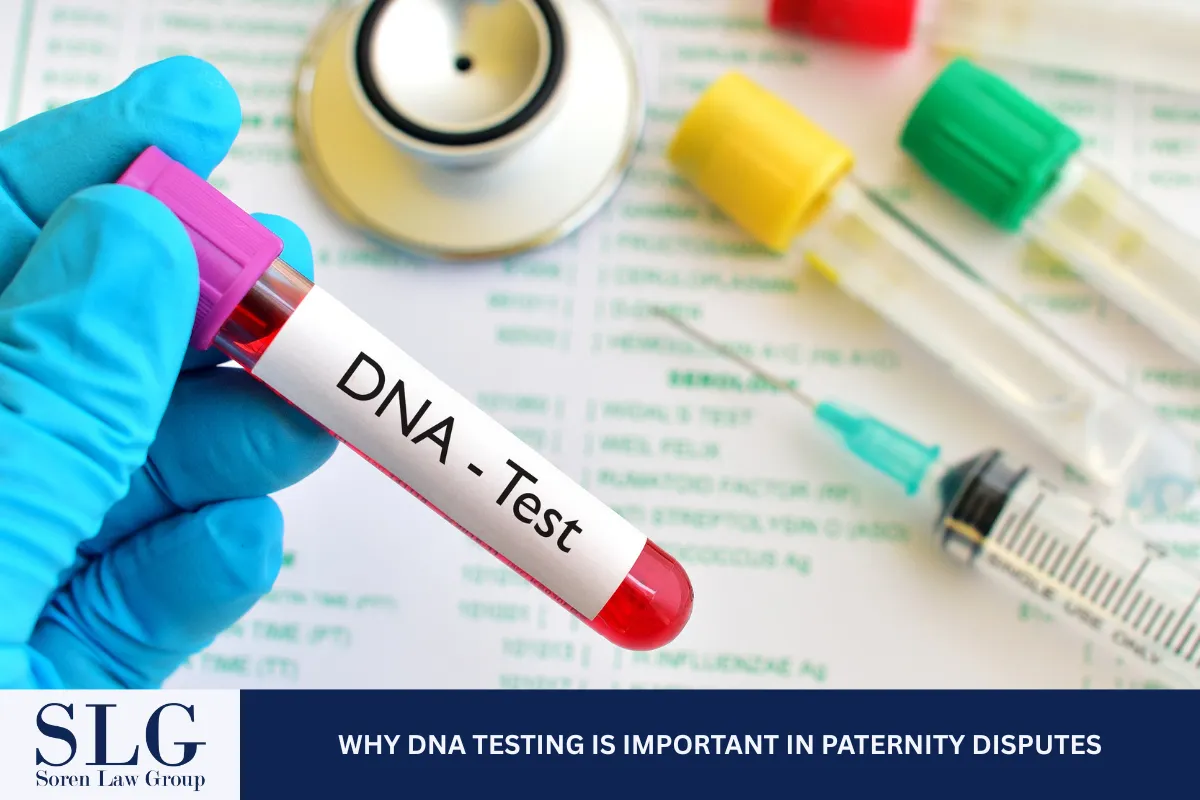
DNA testing in paternity cases is more than just a scientific tool—it plays a key role in legal proceedings that involve establishing the identity of a child’s biological father. In Staten Island, as in the rest of New York, confirming paternity through DNA can have lasting effects on custody arrangements, child support obligations, visitation rights, inheritance, and even emotional bonds between a parent and child.
Once paternity is legally established, it creates a framework for the rights and responsibilities of both parents. For the child, this confirmation ensures access to financial support, medical history, and legal entitlements. For the parents, it often lays the foundation for future legal decisions surrounding parenting plans and responsibilities.
Understanding the Role of DNA in Legal Paternity
DNA testing is widely considered the most accurate method for determining whether a man is the biological father of a child. It works by comparing specific genetic markers found in the child’s DNA with those of the alleged father. Since a child inherits half of their DNA from each biological parent, these comparisons can either confirm or rule out biological paternity with near-perfect accuracy.
In paternity law cases in Staten Island, legal DNA testing is typically ordered either by the court or agreed upon by the parties involved. The results, if processed through an approved and certified laboratory, are legally admissible and can be used to support or challenge claims in family court.
Legal DNA Testing vs. At-Home Testing
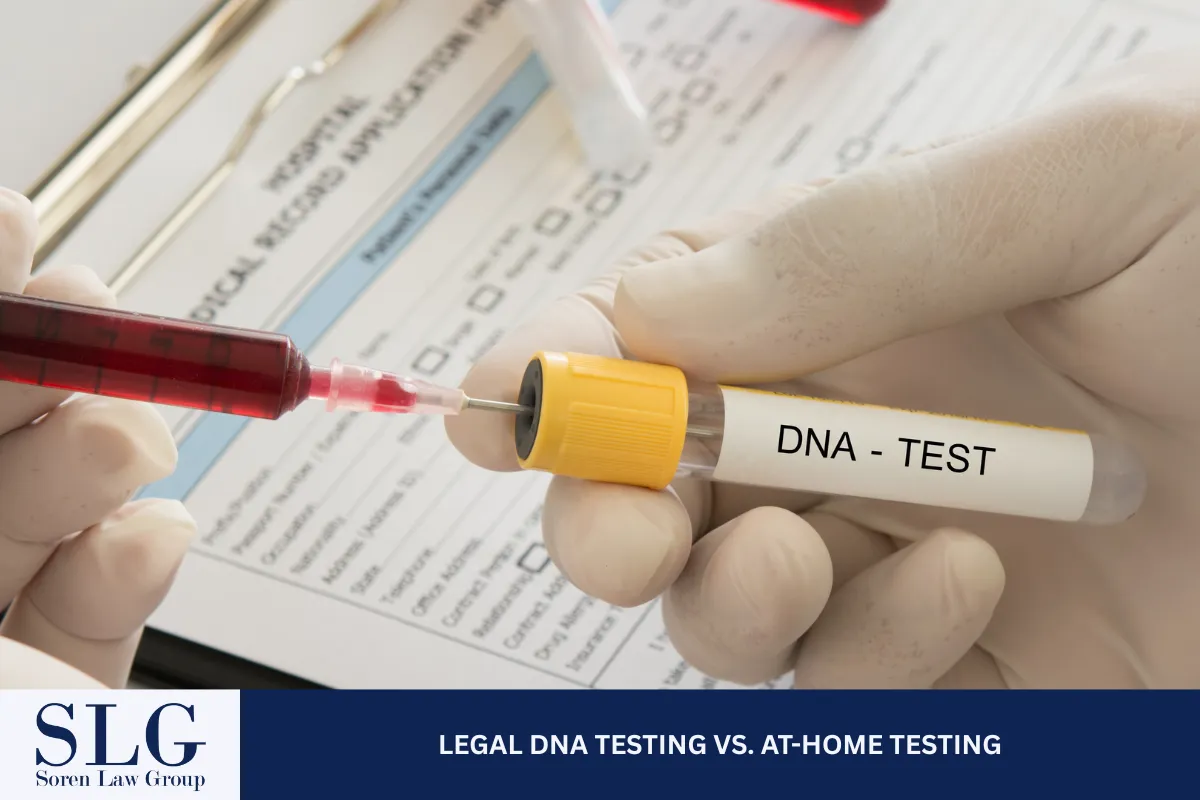
Not all DNA tests are treated equally in a legal context. In New York, only results from court-approved, certified laboratories are considered valid in family law cases. These labs follow strict procedures to ensure the identity of the participants, the integrity of the sample, and the secure transfer of results.
At-home DNA kits, while accessible and inexpensive, do not meet the legal standards required by Staten Island courts. These tests lack the proper documentation, identification protocols, and professional oversight. Even if the results from a home test are accurate, they’re not legally binding. They will not be accepted as evidence in court.
Choosing the correct form of testing is crucial. A qualified paternity law attorney can guide you in selecting and coordinating a legally valid DNA test to avoid delays or complications.
Who Can Request a Paternity DNA Test in Staten Island?
In New York State, several parties may initiate a paternity case, including:
- The mother of the child
- The man who believes he is the father
- The child’s legal guardian
- The New York Department of Social Services, particularly if the mother seeks public assistance
Once a petition is filed with the Family Court in Staten Island, the judge may order a DNA test to determine paternity if it’s disputed. However, if both parties agree on parentage, they may sign a document called the Acknowledgment of Paternity, waiving the need for DNA testing altogether.
Step-by-Step Overview of the DNA Testing Process
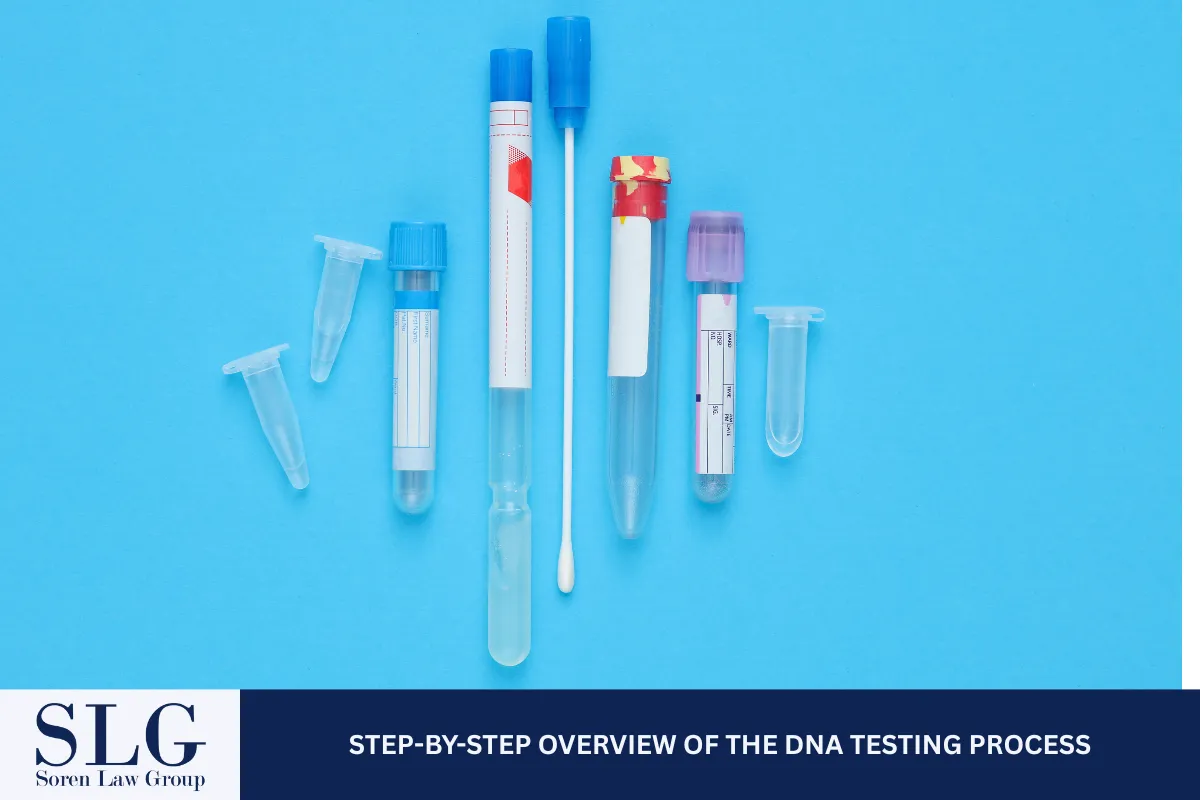
Understanding how the testing process unfolds helps reduce confusion and ensures you meet all legal requirements. Here’s how DNA testing typically works in Staten Island:
1. Filing or Responding to a Paternity Petition
The process begins with filing a petition in Staten Island Family Court. This document formally requests that the court establish or disprove paternity. The person responding to the petition must then attend court hearings and provide necessary documentation.
2. Court Order for DNA Testing
If the parties cannot agree on paternity, the court will issue an order for DNA testing. This test must be conducted at a state-approved laboratory, and all appointments are scheduled by the court or the parties’ legal representatives.
3. Sample Collection and Chain of Custody
Samples are collected using cheek swabs, which are a painless and quick method. To ensure the legal admissibility of results, the lab follows strict chain-of-custody procedures. This means:
- Participants must present valid identification.
- Photos are taken for record-keeping.
- All samples are sealed and labeled securely.
- Every step is documented to prevent tampering.
These safeguards make sure the results can stand up in court.
4. Lab Analysis and Report Generation
Once collected, the samples are analyzed at the lab. The DNA profiles of the child and the alleged father are compared, and a report is prepared. If the alleged father shares at least 99.9% of the necessary markers, paternity is confirmed. If not, the results show a 0% probability of paternity.
5. Result Notification and Legal Filing
Both parties—and their attorneys—receive the results. These are then submitted to the Family Court in Staten Island, where they form the basis for further legal decisions regarding custody, support, or visitation.
Legal Consequences of DNA Test Results
Confirmed Paternity
If the test confirms paternity, the court may issue an Order of Filiation. This legal document formally names the man as the child’s father. From this point forward, he has legal rights and responsibilities, including:
- Paying child support
- Requesting custody or visitation
- Making decisions about the child’s welfare
This legal recognition also grants the child access to benefits such as health insurance, inheritance, and veteran or social security entitlements.
Excluded Paternity
Suppose the DNA results show the man is not the biological father. In that case, the court will dismiss the case unless there is another legal reason to establish paternity (such as prior acknowledgment or marital presumption). Without confirmation, the alleged father is generally not responsible for the child’s financial or legal welfare.
Why Legal Representation Matters in Paternity Cases
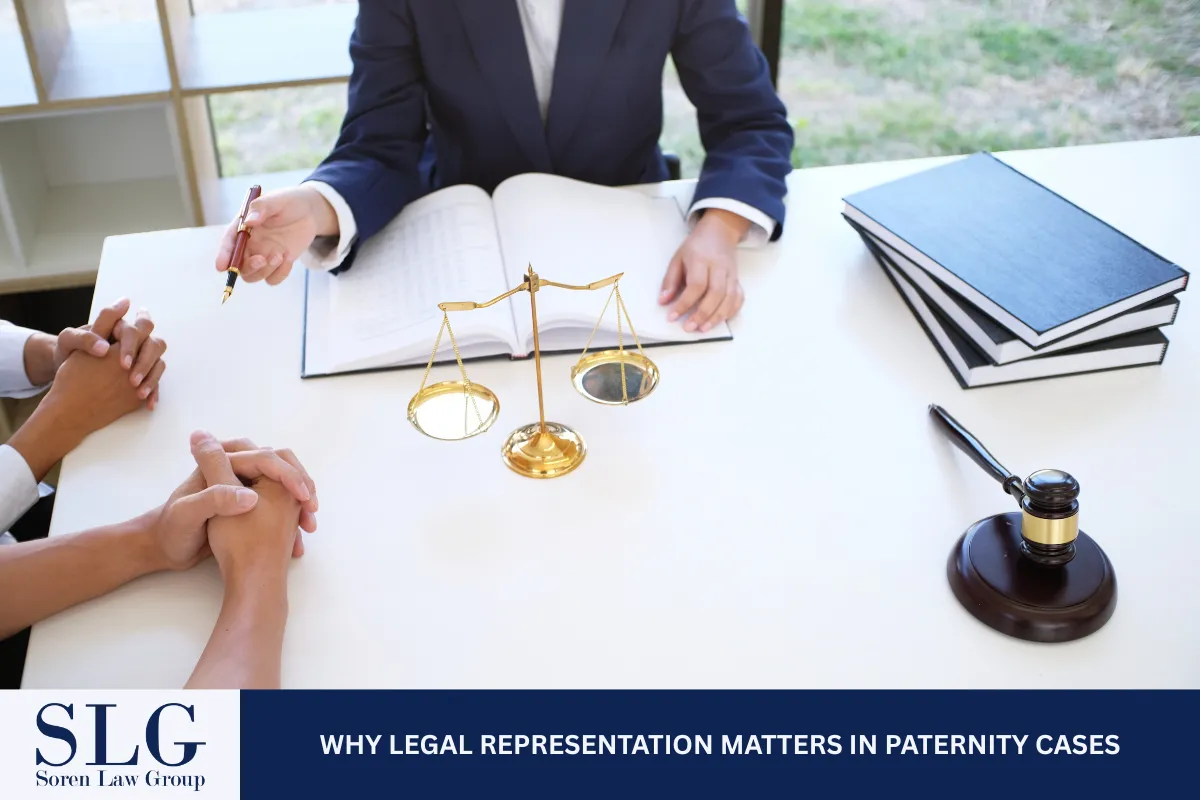
Family law cases involving paternity can become complicated, especially if one party is unwilling to cooperate or if there’s a history of disputes. A paternity law attorney ensures your rights are protected throughout the process. Their responsibilities include:
- Filing correct legal documents
- Advising you on test validity and consent laws
- Ensuring all procedures follow Staten Island court rules
- Representing your best interests during hearings
They also provide insight into how paternity affects future legal decisions, such as custody arrangements or support agreements.
Alternatives to Court Battles in Paternity Disputes
Not all paternity cases end in lengthy trials. Many families in Staten Island resolve their disputes through mediation or settlement conferences. These alternatives to litigation provide an opportunity for both parties to reach a mutually agreeable resolution without the stress of court proceedings. With guidance from a skilled attorney, mediation can be a quicker, less expensive, and more private process.
Still, in contentious situations—especially those involving denial of paternity, child support, or custody—a formal court ruling may be necessary to protect the child’s best interest.
Summary and Key Takeaways
Navigating the DNA testing process in a paternity case is more than just taking a test—it’s about understanding your legal rights, responsibilities, and the long-term impact of establishing parentage. In Staten Island, DNA testing plays a central role in resolving paternity disputes, and it must follow a clear, court-approved procedure to be considered valid.
A legally binding result not only clarifies biological relationships but also serves as a foundation for legal decisions involving custody, visitation, and financial support. Choosing to work with an experienced paternity law attorney ensures that your case is handled correctly and efficiently.
Understanding this process fully allows you to approach paternity matters with confidence and clarity. Whether you are trying to confirm biological ties or establish your legal rights, each step is essential to reaching a fair and informed resolution.
Staten Island Paternity Law Attorney – Soren Law Group
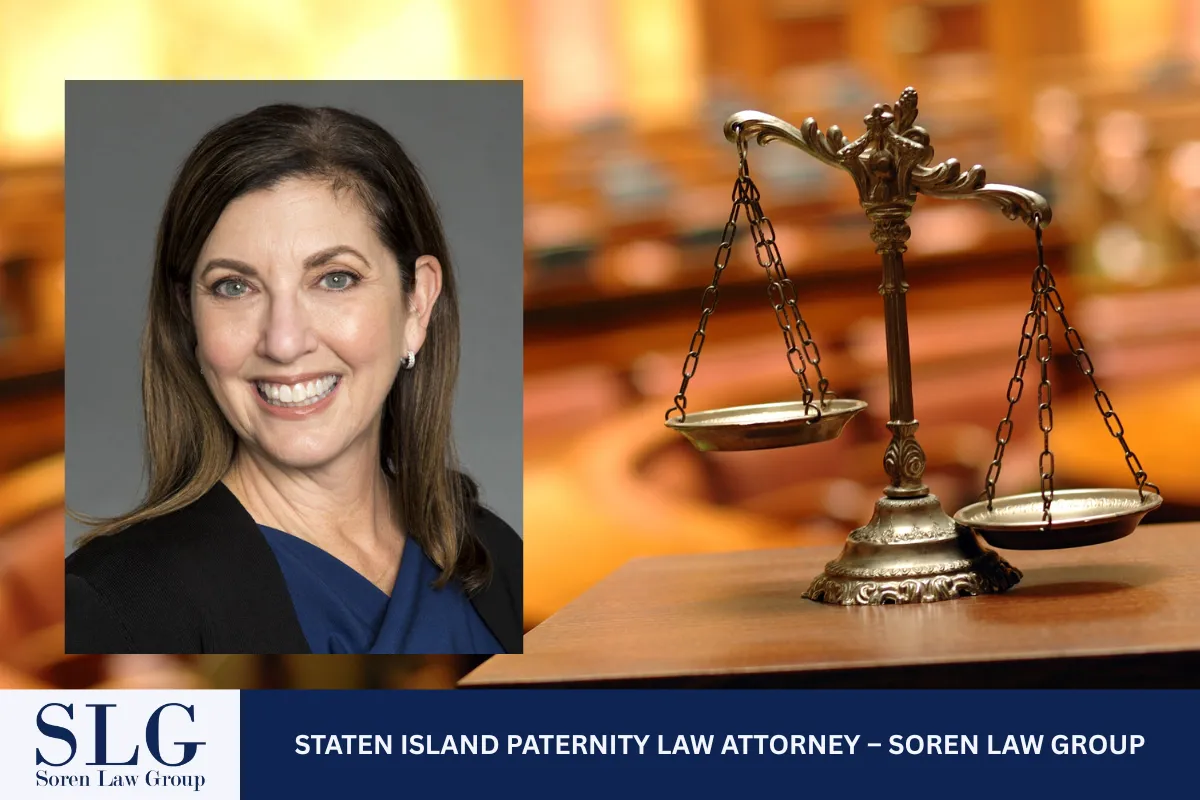
Soren Law Group helps clients in Staten Island handle paternity issues with confidence. Our experienced family law attorneys guide you through the legal process, whether it involves DNA testing, child support, or custody matters. We focus on making every step clear and manageable, so you always know where your case stands.
We’re committed to protecting your rights and making sure your concerns are heard. With a strong background in family law, we work closely with you to understand your situation and find the best solution for your case. Contact us at (718) 815-4500 to receive the support you need from a team that prioritizes your goals.
Frequently Asked Questions About DNA Testing and Paternity Law in Staten Island
1. Is a DNA test required to establish paternity in Staten Island?
A DNA test is not always required to establish paternity. Still, it is the most reliable method when the parentage of a child is in question. In Staten Island, paternity can be established in two main ways:
- Voluntary Acknowledgment of Paternity (AOP)
- Both parents sign a legal form after the child is born.
- No DNA test is needed.
- Common in cases where both parties agree on who the father is.
- Court-Ordered DNA Test
- Used when either parent disputes paternity.
- Ordered by Staten Island Family Court.
- A state-approved lab must conduct a DNA test for results to be valid in court.
Even if not required, a DNA test provides clarity and legal protection for both the parents and the child. It ensures the right person is held responsible and that the child receives all entitled benefits.
2. How accurate is DNA testing for paternity cases in New York?
DNA testing is extremely accurate and considered the gold standard for paternity verification. In New York, state-approved laboratories follow strict protocols to ensure accuracy and integrity. Here’s what you should know:
- Accuracy Rates
- DNA paternity tests are over 99.9% accurate when confirming biological relationships.
- A result of 0% means the alleged father is not the biological parent.
- Testing Process
- Samples are usually taken via cheek swabs (non-invasive).
- Samples from the child and the alleged father are compared to identify matching genetic markers.
- Labs follow a chain of custody protocol to ensure the samples are not tampered with.
- Legal Use
- Only tests from AABB-accredited labs are admissible in Staten Island courts.
- Home test kits are not valid for legal proceedings.
Accuracy is rarely disputed—what matters most is whether the test was legally admissible and properly documented.
3. What happens if the alleged father refuses to take a court-ordered DNA test?
Refusing a court-ordered DNA test in Staten Island has serious legal consequences. The Family Court takes non-compliance seriously, especially when it affects a child’s legal rights and welfare.
Here’s what may happen:
- Default Judgment
- If the alleged father refuses testing without a valid reason, the court may enter a default judgment.
- The judge can legally declare him the father, even without DNA proof.
- Contempt of Court
- Refusing to comply with a court order may result in contempt charges.
- Penalties include fines or, in extreme cases, jail time.
- Loss of Legal Rights
- By avoiding testing, the alleged father could lose the chance to contest child support or seek custody or visitation rights later.
The court’s goal is to act in the child’s best interest. It’s always better to comply and use legal representation to express concerns or request clarification before the test takes place.
4. Can a mother request a paternity test without the alleged father’s consent?
In New York, a mother cannot force a DNA test on her own. However, she can request one through the Staten Island Family Court, which can then issue a legal order requiring the alleged father to participate.
Here’s how the process works:
- Filing a Paternity Petition
- The mother files a petition requesting that the court establish paternity.
- This starts a legal process and involves scheduled hearings.
- Court Evaluation
- If the father contests paternity or refuses to acknowledge the child, the court may order DNA testing.
- The father must comply with this order.
- Legal Enforcement
- A court order has legal force; refusal to comply can result in serious legal penalties.
While the mother can’t administer the test herself, she does have a clear legal pathway to request one. Involving a family law attorney helps ensure the petition is filed correctly and efficiently.
5. What are the legal benefits of establishing paternity in Staten Island?
Establishing paternity brings legal clarity and benefits to both the child and the parents. Once paternity is confirmed—either voluntarily or through a court order—it unlocks important rights and responsibilities.
For the Child:
- Access to child support
- Health insurance benefits (from either parent)
- Right to inheritance
- Access to medical history from both parents
- Possible eligibility for benefits like Social Security, veterans’ benefits, or life insurance
For the Parents:
- Legal ability to request custody or visitation (for the father)
- The right to make decisions about the child’s education, healthcare, and welfare
- A framework for sharing parental responsibilities
- Legal protection against false claims or wrongful denial of parental rights
In Staten Island, once paternity is legally established, both parents are held accountable. It’s a step toward fair and balanced co-parenting, ensuring the child’s well-being is legally protected.
Read more: When to Hire a Paternity Law Attorney for Child Support Cases in Staten Island, NY

